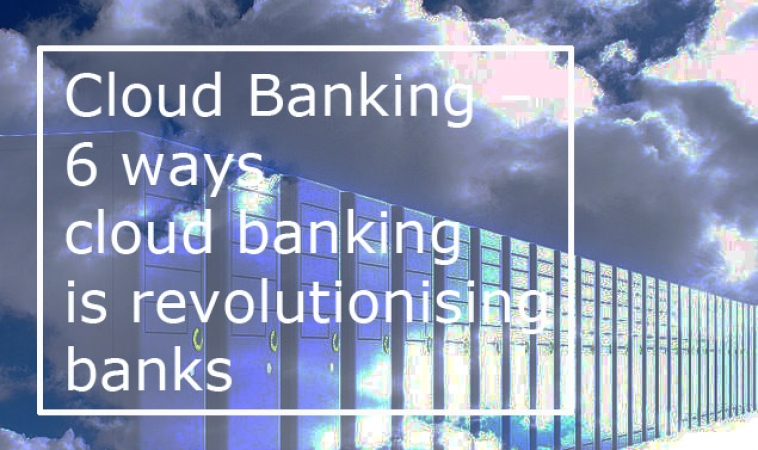
Contents
Cloud Banking – 6 ways cloud banking is revolutionising banks
Living in a digital age, many of us are already familiar with cloud-based computing services, such as personal and business data storage, whereby you can store, access and manage data online via the internet using remote hardware, software and other services without the requirement for large storage capacities. However, this concept may not be something that you associate with banking, yet.
However, the European Commission is looking to make cloud computing for financial services accessible to everyone, by providing extensive resources for accessing hardware and software for cloud banking that can be used by anyone, anywhere. This is set to revolutionise the way transaction banking operates on a global scale, helping to not only make banking more convenient, efficient and flexible; but also to bring better financial inclusion for the unbanked, which in the UK currently stands at 2 million people.
Companies such as Misys are looking to the future too, providing high quality and relevant services for cloud banking solutions that are very much in line with the latest technological innovations and increasing demand for safe, secure and high-tech cloud banking services. But let’s take a closer look at exactly how cloud computing financial services will revolutionise the banking world.
1 Cost Savings
The bottom line in any business is keeping the costs as low as possible and the profits margins high, which is where cloud banking can have a considerable impact. With cloud banking, there is less requirement for banks to invest heavily in hardware and software, as well as manpower to maintain these systems. They can better utilise IT spending and resources, as cloud computing is modular and can be customised to requirements. Therefore you’re only paying for services, hardware, software and the manpower you need, which will cut costs as the IT infrastructure is more efficient.
2 Increased flexibility
In an ever-changing economy it’s important to be flexible and adapt quickly and efficiently to changes in the market, customers and technologies. With cloud computing services, banks will be able to easily and quickly update and upscale or downscale their cloud banking capabilities to meet these demands.
3 Better efficiency
Cloud banking will also help to streamline a bank’s efficiency in operational terms and the level of service they provide their customers. Integrating new technologies and services will be much simpler, thus enabling adoption and utilisation much simpler and easier too.
4 Faster customer service
With cloud computing integration, banks will be able to develop and roll out new initiatives, services and technology on a much quicker timescale, as the infrastructure for cloud banking is continually kept up to date with the latest advancements in technology. This results in less downtime related to formulating and introducing new hardware and software for products and services, bringing them to the customer faster.
5 Stronger client relationships
Banks will also be able to customise their services and products more effectively to build stronger relationships with their clients. With the capacity to store and process huge amounts of data that is easily accessible to their clients, they can help to maximise customer influence to tailor their products and services to suit their market demands.
6 Improved banking transactions between buyers and sellers
At present most banks will use different systems to carry out transactions between buyers and sellers. However, with cloud banking there is the opportunity to marry these processes into one system, making transactions quicker, faster and simpler for both buyers and sellers.
Of course, there are inherent concerns that relate to cloud banking on such a large scale, which need addressing to ensure that the integration and operations of cloud computing for banking customers are safe, secure and successful. This will involve continuously monitoring and managing the cloud banking system to ensure data remains secure at all times and that it is reliable, in line with data protection laws, as well as user-friendly.
With developed cloud computing systems that meet the highest standards of security, performance and functionality, savvy businesses could change the face of transactional banking for the future.
Brought to you by RobustTechHouse. We provide Fintech Development services.










Cloud banking is referred to as cloud storage as well. Cloud technology in banking can simply be understood as the technology meant for keeping data over the web. This can be observed with every banking or financial institution running successfully, be it about the one in high-end cities or a rural bank.